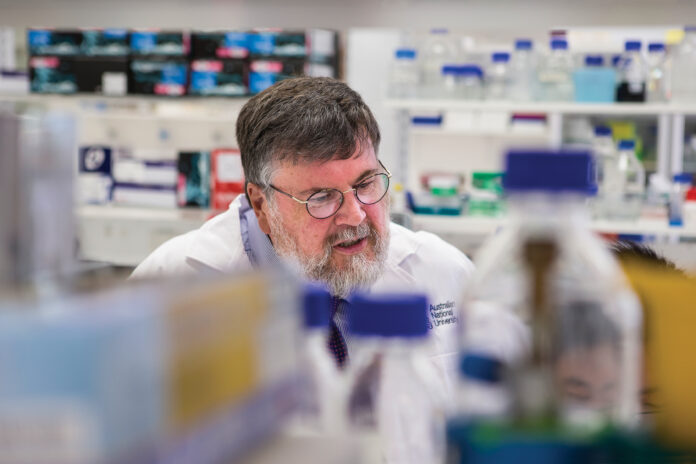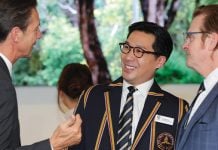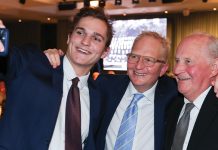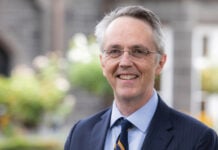Renowned for his research into the genetic response to human disease, Professor Simon Foote (OM 1976) is one of Australia’s pre-eminent medical biologists. Although it may sound incongruous, Simon credits his French teacher, Mr Alby Twigg, with his decision to pursue a medical research career.
“I loved learning French at Melbourne Grammar School, particularly under the tutelage of Mr Twigg,” explains Simon. “He ignited a desire in me to study overseas so, while completing a medical degree at the University of Melbourne, I took two years off to participate in a large medical research programme in Paris.”
“That was the beginning of my research career,” says Simon. “If it hadn’t been for Mr Twigg, I would have become a full-time medical practitioner instead of a full-time researcher.”
Today, Simon holds the extremely rare status of a Fellow of three Australian Academies: the Academy of Science, the Academy of Health and Medical Sciences, and the Academy of Technological Sciences and Engineering.
His career has included a post-doctoral position working on one of the early maps of the human genome at MIT, over a decade working in genetics at Melbourne’s Walter and Eliza Hall Institute, Director of the Menzies Research Institute at UTAS, and Dean of the Medical School at Macquarie University. Simon is currently Director of the John Curtin School of Medical Research at ANU.
“My research has probably had the biggest impact in understanding how the body fights malaria, and in developing new treatments that allow people to fight the disease more effectively,” says Simon.
“The value structure of Melbourne Grammar, along with the fact that each of my teachers had a different approach, was an important part of my learning at the School,” says Simon. “Regardless of the subject, there was always a rigour with which we attacked it. This influences the way I approach my work even now.”
Simon also believes the leadership skills he learned at Melbourne Grammar have been helpful in his professional life. “I was Captain of Perry House and a School Prefect in my final year at the School – and that year was incredibly useful later on,” he explains. “Those leadership roles gave me the faith in myself that I needed to take on senior positions like directing a large medical research institute.”



